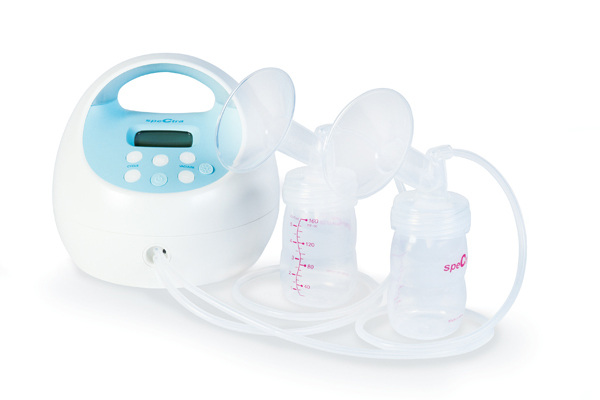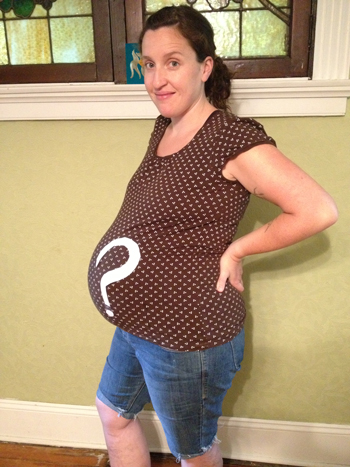So, what are you having?

“So, what are you having?” I forced a smile because […]

I forced a smile because I knew their question was motivated by genuine enthusiasm for our pregnancy, and I love that, so it deserves a smile. But it was forced because I honestly don’t like this question. I have grown weary of it. I know that I hold a minority view on this topic and I tire of defending it. The nice couple sitting across the table doesn’t know that though. They are new parents themselves, and still basking in the afterglow of the recent arrival of their bundle of joy.
“I’m pretty sure we’re having a human. It looked pretty human-like on the screen.” That’s become my standby smart a** remark. That way, I don’t have to answer the question but we can still keep the mood jovial.
“Oh, so, you’re not going to find out the gender?” They ask innocently enough, but with a tinge of concern in their voice.
“No, we like the surprise.”
At this point, I keep the replies short in hopes the subject will change. I know if they ask just one more question, then the can of worms will be opened. Many people stop asking questions by this point because its easy to categorize pregnant couples into one of two categories: 1) Normal people who find out the gender, and 2) The weirdos who “like the surprise.” I’ve now put us into one of the boxes, so this conversation should be over, right?
“Oh that’s neat. So, what do you like about it?” My wife rolls her eyes, shifts a little in her chair, and takes a deep breath as she braces for our plunge into the murky waters of the gender discovery discussion. She’s heard my rant before; a few too many times, in fact. She knows this isn’t going to be a short conversation/monologue.
The truth is that liking the surprise is only about one percent of the reason I don’t want to find out the gender before the birth. The more significant reason is that I believe that there is something fundamentally valuable about the natural course of pregnancy that is designed to shape our character and teach us about life, about ourselves, and about faith. When we mess with that natural course, we run the risk of short circuiting that process of character formation.
To illustrate the point, let’s start with an idea that many parents will readily acknowledge: Having a baby forces you to confront your selfishness and re-orient your life to be more selfless. Now that we all agree on that, let me ask this question: Who benefits from knowing the gender of the baby before it’s born?
Does the baby? No
Does the doctor? No.
Do I? Yes. I had a curiosity itch that I scratched and now I feel satisfied. I can plan things like paint colors for the nursery and clothing and so forth. I just got my felt needs met. Now I’m one step closer to selflessly living for another, right? It seems counterproductive to me that one of the first things we do in the lives of our children is to meet our own felt need when our children are here to teach us selflessness.
Another character trait I have contended with in life is trying to get my reward before I’ve finished the work. I jump the gun and get ahead of myself. Things have never turned out well when I’ve done that. Finding out gender before the birth would be an exercise in trying to get my reward before the hard work is finished. So, waiting for the reward to come at its appropriate time is a kind of discipline for me that helps reform my character and make me a more patient person.
Obviously, having the option to find out the gender of a baby before birth is a relatively recent phenomenon. Maybe, like the hipsters we are, we should consider that there might actually be something valuable in the old-school vintage ways of doing things. Just because we can find out gender, doesn’t necessarily mean we should.
For the record, we did not find out gender on our first two pregnancies. I believe it heightened the delight and wonder we experienced in the birth. In our third pregnancy (twins) we told the ultrasound tech we did not want to know gender, but they were careless and typed it on the screen while we watched. So, we found out by accident.
The bright side is that we got to have the experience knowing ahead of time in order to compare it against the experience of not knowing. To the dismay of some, I will say that this experience only deepened my belief that it is better not to know. Of course, everything about our third birth was wonderful and magical and great, but it felt like part of the wonder and excitement was diminished by the fact that we already knew some very personal information about the new little people who were joining our family.
In conclusion, let me give an obvious disclaimer: It isn’t wrong to find out the gender of your baby before the birth. However, I do want to offer our experience and perspective as food for thought for anyone who cares to know what the weirdos of the pregnancy world think.







